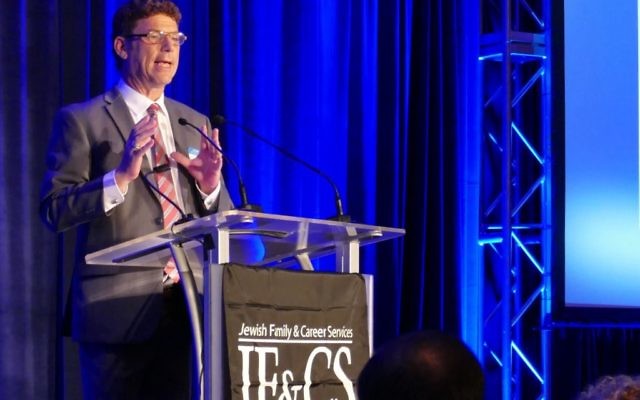A Drunkard of Ephraim Walks the Narrow Bridge
The holidays are over. Christmas break and New Year’s Eve, and I’m still sober. No longer afraid with a few years under my belt.

I am walking into the new year.
The holidays are over. Christmas break and New Year’s Eve, and I’m still sober. Walking the narrow bridge (gesher tzar meod) in recovery. No longer afraid with a few years under my belt.
I thought I’d start the year with a commitment to the synagogue and boost my spiritual condition.
I am reading the Haftorah for Parshah Shemot on Saturday, Jan. 13, in part as a tribute to my father’s yahrzeit. It’s hard to believe he died 27 years ago of pancreatic cancer.
While I don’t believe in coincidences, I do believe in G-d, and if ever a connection could be made with my father, my higher power and my life, then this portion would be it.
Book of Isaiah, Chapter 28:
Ah, the proud crowns of the drunkards of Ephraim,
Whose glorious beauty is but wilted flowers
On the heads of men bloated with rich food,
Who are overcome by wine!
Lo, my Lord has something strong and mighty,
Like a storm of hail,
A shower of pestilence.
Something like a storm of massive, torrential rain
Shall be hurled with force to the ground.
Trampled underfoot shall be
The proud crowns of the drunkards of Ephraim.
That’s me. I am a drunkard of Ephraim. Or at least I was. Part of me will always be. The storm and the torrential rain were my life. The fear, the destruction and the chaos were my life, standing proud against the storm.
With a few denials and a few flat-out lies, I would tell you my life was great.
A mutter upon mutter,
A murmur upon murmur.
Now here, now there.
And like the eye of a hurricane, it all came to a stop. I couldn’t think. I couldn’t speak. It came to its end. Trampled to the ground, I needed help.
Where do I turn? The hospital? There are medicines that can ease the pain and help with the withdrawal. There are therapists to help unpack the baggage of my life.
There are 12-step recovery meetings where I can share my story with other people who know it themselves and tell me of their experiences. They help. But none of them can get me sober.
The only thing I know is that I was not in control of my sobriety. It came from somewhere else. This disease of addiction has its own mind, its own willpower. It can take me down the road to chaos once again.
My recovery comes from outside myself. It is in my belief in G-d, in my connection with my father, who brought me this parshah to learn from, even after he is gone.
My new pet peeve is polite silence. The part of our lives where we are too afraid to speak and too weak to ask when we need something on which our life depends. What if the answer is no?
Maybe if I stay silent, I won’t have to confront the fact that I don’t know what to ask for. What if I’m asking for too little or too much?
It isn’t just a matter of willpower. There has been a change in my biology, and I’m too ashamed to admit it.
Truly, as one who speaks to that people in a stammering jargon and an alien tongue is he who declares to them, “This is the resting place, let the weary rest; this is the place of repose. No more shall Jacob be shamed; no longer his face grows pale.”
Thanks, Dad.
Eric Miller is the former coordinator for Jewish Family & Career Services’ HAMSA anti-addiction program.



comments